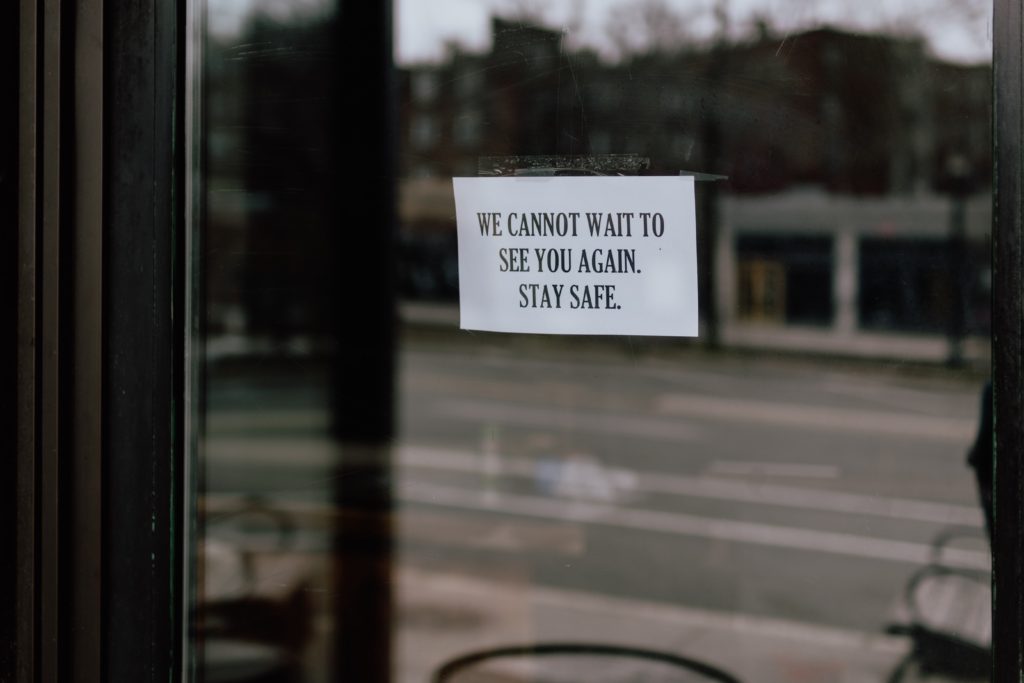
Written by Eduardo A Dingler
There is no doubt that the novel Coronavirus has affected each one of us around the world in one way or another. The beverage industry is no exception; from spirits to wine and sake producers around the globe. The current landscape has crippled the industry by shutting the majority of the restaurant industry.
A few restaurants throughout the United States however have managed to keep their doors open by providing customers with take out options.
In one positive ray of sunshine, states like California have relaxed the ABC (Alcoholic Beverage Control) laws by allowing restaurants to sell alcoholic beverages to go. This measure has helped some sake sales across the country but they haven’t seen nearly the sales numbers that sake had experienced before.
Michael Mina’s Pabu Izakaya in San Francisco is one of the restaurants thriving on to go sake sales “We are selling a good amount of sake, movement is mainly on the $50 bottles and of course cups which are very popular” mentioned Stuart Morris, Sake Director for the Michael Mina Group. The success of sake sales lies on a couple factors. The long time following from the clientele, listing the sake pairing suggestions for each item on the menu and having Stuart answer questions regarding producers over the phone as if he was there to guide them.
Other successful examples include Tsunami Panhandle, Izakaya Rintaro in San Francisco, Hal Yamashita in Napa and Ippuku Izakaya in Berkeley.
There are other outlets that have experienced a surge of sales to record heights. One of them is the grocery stores, although sake selections seem to be generally slim, consumers are stocking up on the brands that are available.
Brick and mortar retailers have gained traction to stay afloat and promote sake sales. Den Sake Brewery located in Oakland, California has doubled efforts promoting Bay Area businesses that serve as an outlet for their products. Some of the retailers include Umami Mart, Mission Bay Wine & Cheese and Bi-Rite SF.
The other avenue for sake sales is the online sector. Retailers like True Sake, which closed for a few days but thankfully reopened, Tippsy Sake, Sakaya NYC, Sipsake.com and Mutual Trading Co have continued to be a great resource for thirsty consumers.
“Sake sales from our brands have increased 30% more than last year” Sake Samurai, VP of The Sake School of America and Sake Specialist at Mutual Trading Co Toshio Ueno said. (*Editor’s Note: They currently close their online shop as of 4/20/2020.)
“Sales are tremendous. We had one month’s worth of orders… in the 5 days we were open this Monday – Friday… it was crazytown!” Said Beau Timkin of True Sake in San Francisco furthermore he mentioned “Orders keep coming in and our first ‘problem’ has been in the supply chain for packaging… there is a shortage of inserts for shipping boxes…. no shortages whatsoever from the sake distributors… I think the restaurants are taking it on the chin, which is a huge bummer.”
In the case of sake focused online retailers sales have been healthy and quite frankly they are having trouble keeping up with the high demand.
“They have been absolutely off the charts. March put my ytd sales past 2019.” Paul Willenberg, Proprietor of Namazake Paul, a Mail Order Sake specializing in unpasteurized Namazake mentioned adding “I committed to a lot of Nama in 2019. Enough I was worried if I could sell it. March 1st the orders started rolling in from existing customers stocking up. And now they are reordering and I’m getting new clients by referral and that have sat on my mailing list for years without ordering.”
It is important to continue pushing forward with consumer education during this time of uncertainty. A number of professionals including Sake Samurai and National Sake sales manager at Vine Connections Monica Samuels have been conducting Sake 101 segments on platforms like FaceBook Live.
The struggle to maintain sales has hit a number of smaller importers and distributors, “These are very scary and uncertain times and I’ve had to get creative. The ability to do DTC (Direct To Consumer) through a friend’s wine company, while not coming close to replacing lost sales, is a way to stay engaged with the local sake community, which is great for my mental health.” Said Jesse Pugach Proprietor of Fifth Taste Importer/Distributor.
We can all do our part, something as easy as promoting each other on social media. Reposting, commenting and sharing goes a long way in platforms like Facebook, Instagram and Twitter. Also posting pairing suggestions, if you’re having pizza, grandma’s Chicken Pot Pie or Indian Curry crack open that bottle of sake and share it with the world. Send your wine drinker friends a bottle of sake and invite them to experiment and share the moment (virtually). Next time you’re at the store buy a sake you haven’t tried before and also do the same online.
In situations like this it is important to emphasize the resilient nature of the Sake Industry that starts with producers and continues strong through importers, distributors, educators and of course the many consumers across the country. I believe as a ‘Sake Unit’ we can ensure the positive trend in sales by educating consumers to enjoy sake regularly and experiment with other world cuisine beyond sushi.